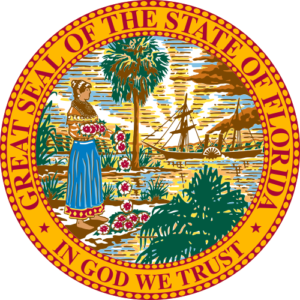 PIP Reform in Florida - Expected to have effect with delays only?
PIP Reform in Florida - Expected to have effect with delays only?
One of the most-watched developments in auto insurance nationwide is unfolding this month in Florida, as auto insurers make rate filings to comply with the Sunshine State’s landmark law to combat fraud in personal injury protection, or PIP.
Florida’s bill passed March 12 and went into effect July 1, but rates reflecting the change will not take effect until Jan. 1, 2013. Insurers are making required filings, which must show how they will meet a required 10 percent rate reduction or why they can’t. Another round of filings, requiring even deeper savings, will be due Jan. 14, 2014. Changes in Florida matter nationally because of the size of the market – it has more than 14 million licensed drivers – and its status as the top state in the nation for staged auto accidents. In fact, other states are already taking notice: New York Gov. Andrew Cuomo – a Democrat – has announced plans to crack down on fraudulent doctors who drive up costs in that state’s no-fault insurance system.
Florida rate filings through Nov. 15 showed most insurers shaving 10 percent off rates, but that doesn’t mean consumers will feel the
difference right away. In many cases, the 10 percent was achieved by looking at how much the insurer would have raised rates without the new law, and the net effect for drivers is still an increase.
“Although it initially appears the savings will result from a mitigation of rate increases rather than actual rate reductions for most companies, it does represent a major shift in the trajectory of PIP insurance rates in Florida,” Florida Insurance Commissioner McCarty said on October 1.
There is a lag between the time PIP reform passes and the full effect in rates, because insurers need time for the changes to work, said Lynne McChristian, Florida representative for the Insurance Information Institute told CarInsuranceCalculator.info. “Insurance rates reflect claims costs, and the fact is that none of the measures designed to lower PIP costs have started is the obvious reason,” that some insurers are still showing net increases, she said.
PIP is the portion of an auto insurance policy that provides coverage to pay for medical care and lost wages after an accident; making it mandatory, the logic goes, would allow drivers to receive care regardless of who is at fault in accident, thus ensuring that costs can be paid without lawsuits. But it doesn’t always work that way in the real world, as Florida learned in the decades after it began requiring $10,000 of PIP in 1972. When Republican Gov. Rick Scott made PIP reform the centerpiece of the past legislation session, industry watchers pegged Tampa and Miami as hothouses of insurance fraud.
The Insurance Information Institute said the average Florida claim rose from $5,812 in 2008 to a peak of $8,796 in late 2010. Florida’s new law will cap PIP at $2,500 without authorization from a physician or other licensed medical professional; significantly, the law requires those filing claims to be treated within 14 days of an accident.
Escalating PIP costs are a huge variable in the cost of auto insurance, as they can be very difficult for insurance companies or regulators to control. Attempts to rein in PIP costs can be equally tricky, for it can take years for interpretations of new laws to wind their way through the costs. In New Jersey, for example, major PIP reform legislation passed in 1998, but it took until the mid-2000s for the courts to refine what insurers could do under the law. Then, the attempt by the N.J. Department of Banking and Insurance to rewrite the fee schedule was itself held up in court. The new schedule finally took effect this month.
Florida may see the same fallout. The Florida Justice Association, which represents the state’s trial bar, has predicted that lawsuits challenging the new law would be filed after Jan. 1, 2013, when the new rate mechanisms take effect.
But other observers are more optimistic. A state-sanctioned study by Pinnacle Actuarial Resources predicted that the reform law would ultimately save drivers between 12 and 20 percent.
Donovan Brown, Florida’s government relations counsel for Property Casualty Insurers of America, cautioned against unrealistic expectations by consumers. “From the very beginning, PCI and its member companies have warned of the current and long-term damages resulting from the rampant fraud and abuse in the PIP system.
“While the 2012 PIP legislation delivered the potential to begin fixing the runaway costs within the system, it is imperative that policymakers, regulators and Florida drivers understand that it must have adequate time to take effect.”